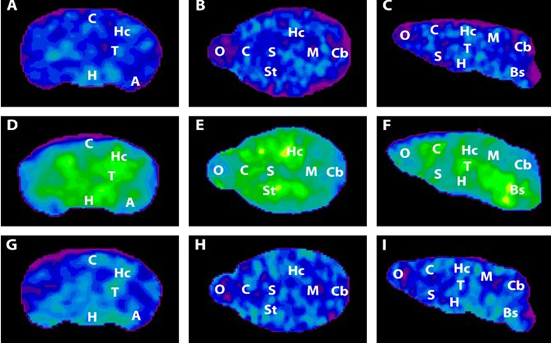“Woke Racism”: Does modern antiracism operate as a dogmatic religion?

- In his new book, Woke Racism: How a New Religion Has Betrayed Black America, the linguist and writer John McWhorter argues against what he sees as harmful excesses of the modern antiracist movement.
- McWhorter proposes that modern antiracism operates as a religion, with dogmatic beliefs that its adherents must follow and not question.
- This new religion is akin to performance art and fails to improve the lives of the people it claims to help, according to McWhorter.
The following is adapted from WOKE RACISM: How a New Religion Has Betrayed Black America by John McWhorter, published on October 26th by Portfolio, an imprint of the Penguin Publishing Group, a division of Penguin Random House, LLC. Copyright © 2021 by John McWhorter.
One can divide antiracism into three waves along the lines that feminism has been. First Wave Antiracism battled slavery and legalized segregation. Second Wave Antiracism, in the 1970s and ’80s, battled racist attitudes and taught America that being racist is a moral flaw. Third Wave Antiracism, becoming mainstream in the 2010s, teaches that because racism is baked into the structure of society, whites’ “complicity” in living within it constitutes racism itself, while for black people, grappling with the racism surrounding them is the totality of experience and must condition exquisite sensitivity toward them, including a suspension of standards of achievement and conduct.
Under this paradigm, all deemed insufficiently aware of this sense of existing while white as eternal culpability require bitter condemnation and ostracization, to an obsessive, abstract degree that leaves most observers working to make real sense of it, makes people left of center wonder just when and why they started being classified as backward, and leaves millions of innocent people scared to pieces of winding up in the sights of a zealous brand of inquisition that seems to hover over almost any statement, ambition, or achievement in modern society.
So one might ask why I seem to consider it such an issue that some food columnist, some nursing school dean, and some data analyst have had their lives derailed by this movement. But I write not of something happening to a few unlucky people, but operating within the warp and woof of society. No one can know just when or how Third Wave Antiracist proselytizing may blindside them while they are going about their business.
It is losing innocent people their jobs. It is coloring academic inquiry, detouring it, and sometimes strangling it like kudzu. It forces us to render a great deal of our public discussion of urgent issues in double-talk any ten-year-old can see through. It forces us to start teaching our actual ten-year-olds, in order to hold them off from spoiling the show in that way, to believe in sophistry in the name of enlightenment. On that note, Third Wave Antiracism guru Ibram X. Kendi has written a book on how to raise antiracist children, called Antiracist Baby. (You couldn’t write it better—are we in a Christopher Guest movie?) This and so much else is a sign that Third Wave Antiracism forces us to pretend that performance art is politics. It forces us to spend endless amounts of time listening to nonsense presented as wisdom, and pretend to like it.
Graduate students and professors write me and my podcast sparring partner, economist Glenn Loury, in droves, frightened that this new ideology will ruin their careers, departments, or fields, as they also do to other organizations, often on private email accounts to avoid being smoked out by anyone at the institutions they work for. People in positions of influence are regularly being chased from their posts because of claims and petitions that they are insufficiently antiracist. School boards across the country are forcing teachers and administrators to waste time on “antiracist” infusions into their curricula that make no more sense than anything proposed under China’s Cultural Revolution. Did you know that objectivity, being on time, and the written word are “white” things? Did you know that if that seems off to you, then you are one with George Wallace, Bull Connor, and David Duke?
As recently as 2008, Christian Lander wrote with wry humor in Stuff White People Like of “being offended” as something a certain kind of “white” person enjoys doing, alongside their film festivals and vintage T-shirts. Just over a dozen years later, one reads that chapter with a shudder that the kind of person Lander was referring to will see it over your shoulder and launch into a hissing tirade about how there is nothing funny about people trying to dismantle the prevalence of white supremacy and all whites’ “complicitness” in it. If he were to write that book today, Lander would be unlikely to include that joke, which is an indication of the extent to which there is something in the air that we hadn’t seen until quite recently. A critical mass of the people he was referring to no longer just quietly pride themselves on their enlightenment in knowing to be offended about certain things, but now see it as a duty to excoriate and shun those (including black people) who don’t share their degree of offense.
To some, all of that may sound like mere matters of manner and texture. But Third Wave Antiracism also outright harms black people in the name of its guiding impulses. Third Wave Antiracism insists that it is “racist” for black boys to be overrepresented among those suspended or expelled from schools for violence, which, when translated into policy, is documented as having led to violence persisting in the schools and lowered students’ grades. Third Wave Antiracism insists that it is “racist” that black kids are underrepresented in New York City schools requiring high performance on a standardized test for admittance, and demands that we eliminate the test rather than direct black students to resources (many of them free) for practicing the test and reinstate gifted programs that shunted good numbers of black students into those very schools just a generation ago. That the result will be a lower quality of education in the schools, and black students who are less prepared for exercising the mind muscle required by the test taking they will encounter later, is considered beside the point.
Third Wave Antiracism, in its laser focus on an oversimplified sense of what racism is and what one does about it, is content to harm black people in the name of what we can only term dogma.





